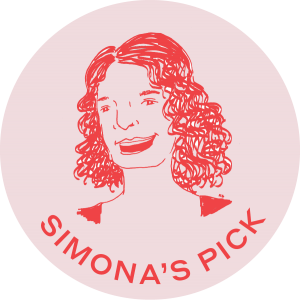Adeena Sussman’s Sababa: Fresh, Sunny Flavors from My Israeli Kitchen is more than just an Israeli cookbook. It’s also a love letter to the food and atmosphere of Israel, in particular Tel Aviv’s iconic outdoor marketplace, Shuk HaCarmel. Sussman uses this location to explore the ingredients she uses in her kitchen.
The beginning of the book gives us a personal insight into who Sussman is and where her ingredients come from. Israeli chef Michael Solomonov had the pleasure of visiting Sussman’s apartment in Tel Aviv and provides a detailed account in his foreword of what it’s like to be in her kitchen. Solomonov writes, “all the senses are engaged” as soon as he steps into her home; from Sussman’s warm embrace, to the smell of freshly baked bread, to her kitchen countertop “laden with a bounty of tasty delights.”
Sussman’s introduction is an engaging narrative about her experience shopping for ingredients, which underpins her love for cooking. Shuk HaCarmel is her happy place and culinary inspiration. She relays her captivation with the shuk through vibrant photos that flood the pages with its produce and vendors. Sussman describes the sounds, aromas, sights, and people she encounters during her mornings — illustrating how her recipes, no matter how elaborate, are still made from the simple natural groceries of the marketplace.
She teaches us innovative ways to use staple Israeli ingredients like tahini, date syrup, and za’atar, which are inspired by the multicultural population of people who call Israel their home. We first get a comprehensive chapter on spice blends and condiments, from the Yemenite spice blend Hawaiij to labaneh (and six ways to use it!). She gives us the option to make them ourselves, but also provides a shopping guide at the end of the book that lists store-bought options.
Starting with breakfast recipes, which includes two kinds of shakshuka and Lachuh (Yemenite crumpet pancakes), and a brief guide to Israeli cheeses, we’re drawn to the colorful full-page photos that accompany almost every recipe.
Sussman takes us on a culinary and cultural journey throughout several chapters. She also adds personal anecdotes and background information for many of the recipes she introduces. In “Bread and Savory Snacks” she presents “Erez’s Wedding Lamb Focaccia,” which comes with both a mouth-watering photo and a story behind the dish and its name. As she explains how the focaccia was made at her wedding by a legendary baker who lives near the Lebanese border, she describes the dish having an “aroma so alluring it seduced people off the dance floor.”
She explores both simple and intricate ways of cooking vegetables and soups, from the Lebanese-inspired “Mushroom Arayes with Yogurt Sauce,” to Russian Jewish “Chilled Beet and Cherry Borscht.” Sussman provides an array of Ashkenazi, Sephardi, Mizrahi, and Middle Eastern recipes from salatim to pasta, grains, poultry, meat, and fish. She adorns ordinary foods with Israeli flavors, like pappardelle pasta with roasted tomato and labaneh, and “Za’atar Roasted Chicken Over Sumac Potatoes.” But don’t be alarmed, Sussman still brings classic Israeli recipes to the table, like “Crispy Sesame Schnitzel,” “Tahini-Glazed Carrots,” and falafel and eggplant steaks.
Alongside flavourful morning beverages, like “Cardamom-Cinnamon Cold Brew,” she suggests fun Israeli cocktails like “Pomegroni” and “Watermelon Arak Granita.” Before even entering Sussman’s world of Israeli desserts, we’re drawn in by an inviting glimpse of pistachio-crusted lemon bars, with bright yellow and green hues laid on a luscious pink backdrop. She provides sweet classics with a Sussman twist, like “Tahini Blondies” and chocolate-orange babka, to simple yet rich recipes like olive oil chocolate spread to Arab-originated desserts like knafeh and a labaneh malabi panna cotta.
The recipes range from quick and easy to more elaborate, but they all remain accessible, unique, and delicious. They’re valuable not only for their flavors but also for their stories and culinary history, which add a special and meaningful layer to the cooking experience. Sussman includes recipes from all Israeli walks of life, which gives an additional color to her already vibrant cookbook.
Michelle Zaurov is Jewish Book Council’s program associate. She graduated from Binghamton University in New York, where she studied English and literature. She has worked as a journalist writing for the Home Reporter, a local Brooklyn publication. She enjoys reading realistic fiction and fantasy novels, especially with a strong female lead.


